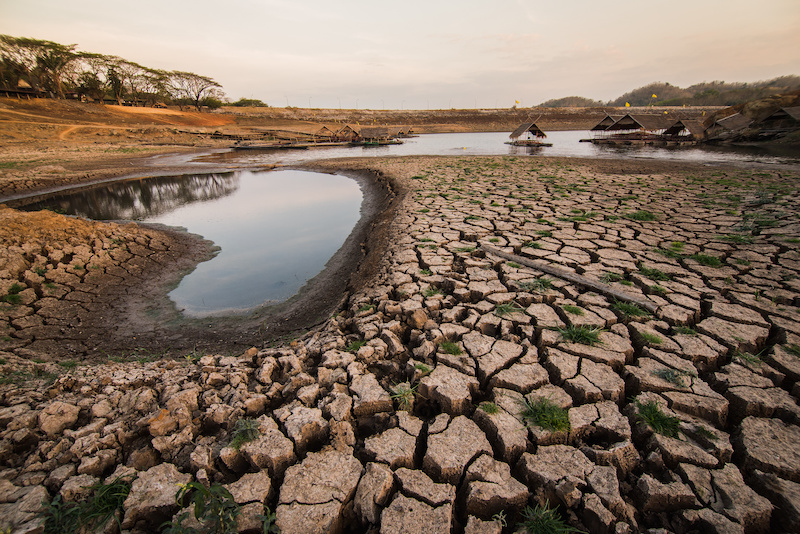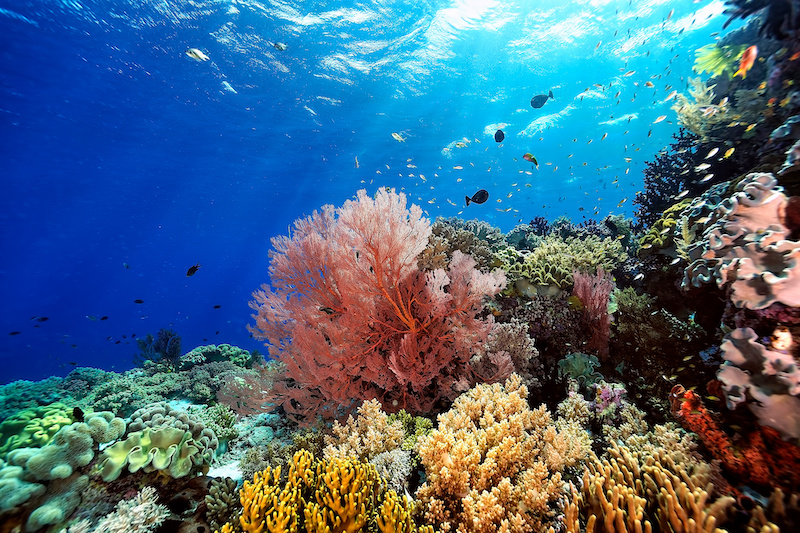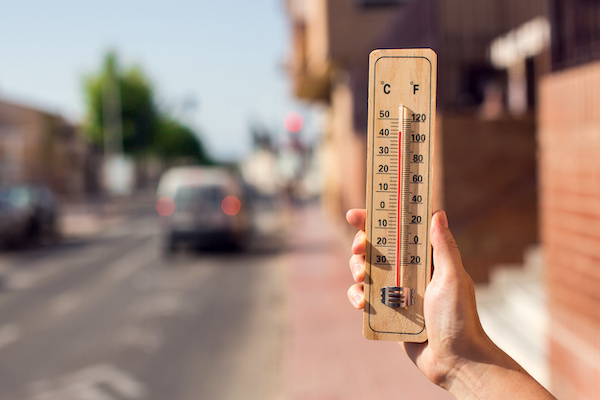As COP29 begins, the urgency to keep global warming below 1.5°C is more pressing than ever. Scientists and experts have repeatedly warned that surpassing this threshold could lead to unprecedented and irreversible consequences for ecosystems, human health, and the global economy. Each incremental rise in temperature has profound implications, impacting everything from species survival to food security. As world leaders, NGOs, and businesses converge for COP29, there is a renewed focus on taking immediate, impactful action.
Here’s why every fraction of a degree matters, and what key leaders are saying on these critical issues:

🌡️ Extreme Heat and Public Health
At 1.5°C, about 14% of the world’s population will face severe heatwaves at least once every five years. But at 2°C, the risk skyrockets, putting 37% of people in danger. The difference? Two and a half times more people are at risk, leading to greater health crises, water shortages, and energy demands.
Dr. Tedros Adhanom Ghebreyesus, WHO Director-General, emphasizes the urgency, stating, “Climate change is already affecting health in a myriad of ways, including by leading to death and illness from increasingly extreme weather events, impacting food and water security, and undermining social determinants of health. The difference between 1.5°C and 2°C is a matter of life or death for countless people.”
Simon Stiell, UN Climate Change Executive Secretary, echoes this urgency, stating, “Each fraction of a degree brings us closer to a tipping point in human health and survival. Heatwaves, droughts, and extreme events are no longer just statistics—they’re deadly, destabilizing forces. Keeping to 1.5°C isn’t just about numbers; it’s about protecting lives and communities.”

🐾 Biodiversity and Species Loss
The loss of biodiversity isn’t just an environmental issue; it’s a crisis that affects food security, ecosystems, and economies. If temperatures rise to 1.5°C, many species already face extinction risks, but at 2°C, the threat doubles for vertebrates and plants, and triples for insects, which play crucial roles in pollination and natural pest control.
Inger Andersen, Executive Director of the UN Environment Programme (UNEP), explains, “The survival of our planet’s ecosystems is non-negotiable. Every species lost is a thread pulled from the web of life that sustains human survival. We’re at a breaking point, and the loss of biodiversity directly impacts everything from agriculture to climate resilience.”
In a recent statement, Simon Stiell emphasized the relationship between biodiversity and climate resilience, saying, “Biodiversity is the foundation of our natural world and human wellbeing. Every species we lose weakens the resilience of the ecosystems we depend on. Protecting biodiversity is protecting ourselves—and 1.5°C is the limit we cannot afford to surpass if we want to sustain these life systems.”

🌽 Agriculture, Land, and Food Security
Higher temperatures affect crop yields, particularly in tropical regions, where a 7% decrease in productivity could lead to food shortages and rising prices. Additionally, increased warming will thaw nearly 40% more permafrost, releasing trapped greenhouse gases that will accelerate warming further, creating a devastating feedback loop.
David Beasley, Executive Director of the World Food Programme (WFP), warns, “Climate change is driving up hunger levels in regions that can least afford it. Failing to keep temperatures below 1.5°C is a direct threat to food security for millions. We’re on the verge of seeing entire harvests wiped out, which will lead to famine, displacement, and conflict.”
Simon Stiell underscores this point, warning, “Food insecurity is one of the most direct and severe risks of climate change, with millions at risk of hunger and malnutrition. We are already seeing declines in crop yields and increased price volatility due to climate impacts. We cannot afford inaction on a crisis that threatens our ability to feed the world

🌊 Ocean and Marine Ecosystems
Peter Thomson, UN Special Envoy for the Ocean, speaks to the critical role of marine ecosystems: “Healthy oceans are essential to life on Earth. If we allow warming to exceed 1.5°C, we risk losing coral reefs, which support 25% of marine life. This isn’t just an environmental crisis but a social and economic one that will affect coastal communities and economies worldwide.”
Oceans serve as vital carbon sinks and home to complex ecosystems that support billions of people. However, at 1.5°C, coral reefs are already in danger of a 70-90% decline, and at 2°C, that jumps to 99%. This loss would devastate marine biodiversity and the livelihoods of coastal communities. Additionally, fisheries will see double the decline, threatening global food supply and economic stability.
Simon Stiell has highlighted the vulnerability of our oceans, saying, “The loss of coral reefs and marine life is more than just an environmental issue; it’s a humanitarian crisis. Coastal communities, economies, and millions of people depend on healthy oceans. Staying within the 1.5°C threshold is critical to safeguarding these ecosystems and the people who rely on them.”

🌍 Why Every Fraction of a Degree Matters
Exceeding 1.5°C doesn’t just increase the likelihood of extreme events; it fundamentally changes the world we live in, leading to more severe, more frequent, and less reversible impacts. Each fraction of a degree avoided represents millions of people protected from catastrophic weather, food scarcity, displacement, and poverty.
Antonio Guterres, UN Secretary-General, has repeatedly emphasized this in his statements, saying, “We are on a highway to climate hell with our foot still on the accelerator. 1.5°C is a critical limit, not an arbitrary line. Every tenth of a degree matters—every bit of avoided warming is a life saved, a species spared, an ecosystem sustained.”
“The difference between 1.5°C and 2°C is the difference between a manageable future and one filled with devastation.” Simon Settle stated, and adding, “Each fraction of a degree means lives saved, ecosystems preserved, and a better world for our children. COP29 must not be just another conference—it must be a turning point.”
The Role of Businesses and Policymakers
The path to staying below 1.5°C requires bold action from both businesses and governments. Policymakers must enforce stricter emissions regulations, commit to sustainable development, and support renewable energy. Businesses have a critical responsibility to transition to greener models, invest in sustainable practices, and support global efforts for a net-zero future.
In urging greater corporate responsibility, Simon Stiell remarked, “Business as usual is no longer an option. The private sector has a vital role in building a sustainable economy, but this demands real investment and accountability. COP29 is a call to action for businesses to step up—not just for profit, but for people and the planet.”
Christiana Figueres, Former Executive Secretary of the UNFCCC, urges both sectors to act now: “This is not about business as usual; it’s about business as urgent. The private sector must be an engine for change, moving toward net-zero in a way that supports sustainable economic growth. Governments, on the other hand, need to set clear and enforceable policies to ensure that the 1.5°C target remains within reach.”
The commitments made at COP29 have the potential to either push us toward a more resilient, sustainable world or lock us into a trajectory of escalating crises. The leaders, executives, and policymakers present have a responsibility to take decisive action that will keep global warming within manageable limits.
COP29 is a defining moment. The commitments made here can determine the future of the planet. Each fraction of a degree of warming prevented translates into millions of lives and thousands of ecosystems preserved. Leaders have laid out the stakes clearly; the question is, will we answer the call?
What role do you think businesses and policymakers should play to make this a reality?
www.unfccc.int

